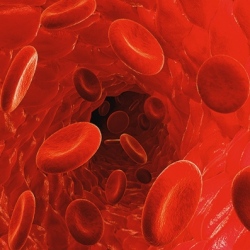
Scientists say they have taken a “very positive step” towards creating a universal vaccine against cancer. Researchers described how they had taken pieces of cancer’s RNA code, put them into tiny nanoparticles of fat and then injected the mixture into the bloodstreams of three patients in the advanced stages.
The patients’ immune systems responded by producing "killer" T-cells designed to attack cancer.
The vaccine was also found to be effective in fighting “aggressively growing” tumors in mice, according to researchers, who were led by Professor Ugur Sahin from Johannes Gutenberg University in Germany.
“[Such] vaccines are fast and inexpensive to produce, and virtually any tumor antigen [a protein attacked by the immune system] can be encoded by RNA," they wrote
The paper said the three patients were given low doses of the vaccine and the aim of the trial was not to test how well the vaccine worked. While the patients’ immune systems seemed to react, there was no evidence that their cancers went away as a result.
In one patient, a suspected tumor on a lymph node got smaller after they were given the vaccine. Another patient, whose tumours had been surgically removed, was cancer-free seven months after vaccination.
The third patient had eight tumours that had spread from the initial skin cancer into their lungs. These tumours remained “clinically stable” after they were given the vaccine, the paper said.
The vaccine, which used a number of different pieces of RNA, activated dendritic cells that select targets for the body’s immune system to attack. This was followed by a strong response from the "killer" T-cells that normally deal with infections.
Cancer immunotherapy is currently causing significant excitement in the medical community.
